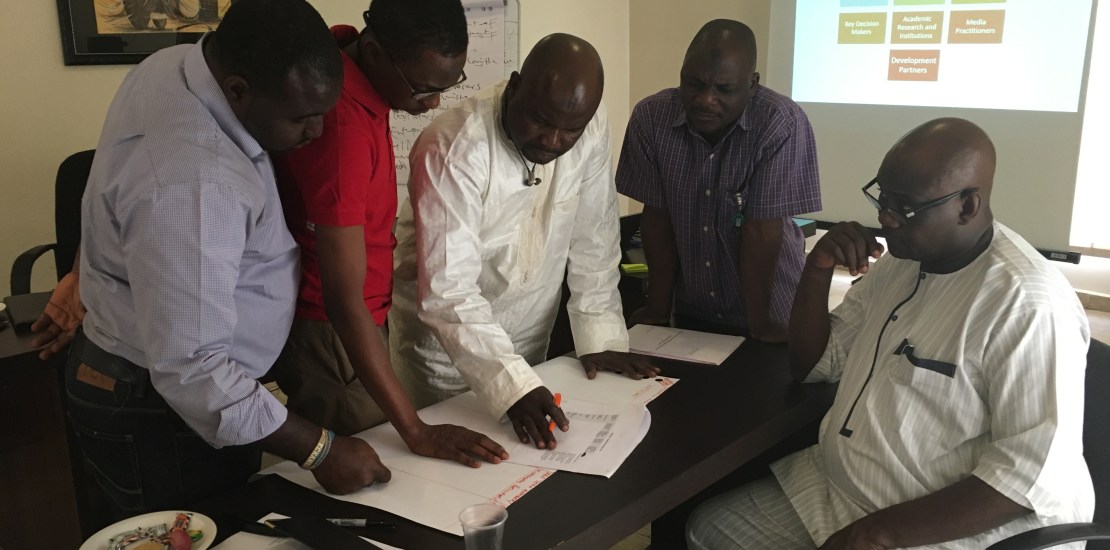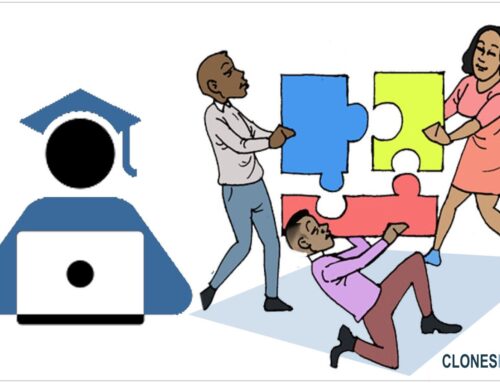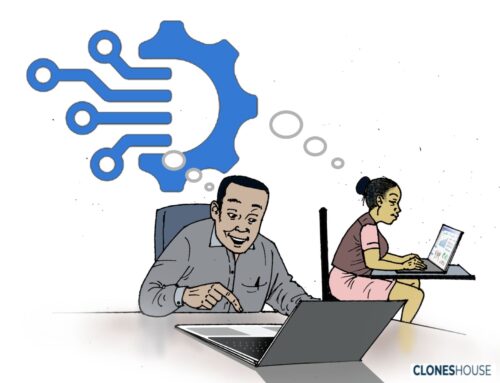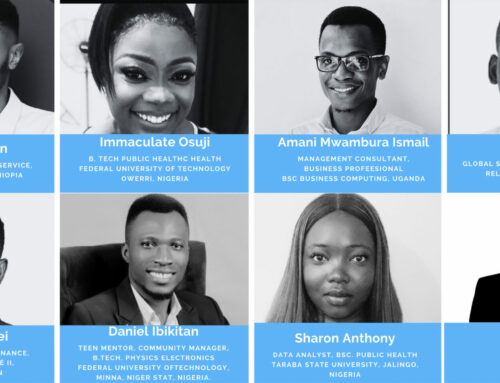Over the past decade, Cloneshouse Nigeria has trained hundreds of individuals in the emerging field of Results-based Monitoring and Evaluation in Africa. With our commitment to strengthen institutions across the continent, we have received not less than 1, 234 applications over the last 4 years. As an institution, we constantly get our training participants to evaluate our trainings and the approach of our facilitators, not excluding the usefulness of the course-content, areas of difficulty in application, how the training has improved participants’ knowledge and skill, length of course, and even the general “feeling” of participants’ about the course, amongst others.
As commendable as that is, effective learning in an M&E training session is not dependent on the trainer alone. Effective learning is best achieved when both parties – trainer and trainee alike, are well prepared and poised for an ace learning experience. Learning is distinct for adults, and is not as simple as it may seem. It is in fact, complex; complex because people are complex, each with different sets of values, preferences, priorities and experiences that affect the learning process (Chaplowe, 2016)
There are many schools of thoughts for adult learning, and this is not to say that they all agree. As a matter of fact, amongst these thoughts there seems to be more debate than consensus (eg Davenport and Davenport, 1985). Typically however, they embrace the concepts of behavioural change and experience.
Effective learning in an M&E training session is not dependent on the trainer alone. Effective learning is best achieved when both parties – trainer and trainee alike, are well prepared and poised for an ace learning experience.
Our focus in this article will be limited to 2 prominent influences in adult learning: andragogy and experiential learning. A proper understanding of these two influences will go a long way in equipping us to be mentally positioned to get the best in any training, not excluding one on Monitoring and Evaluation. These two have been chosen amongst others because they provide a good overview for the train of thought here, as it is certainly beyond the scope of this article to exhaust all the others.
ANDRAGOGY
Andragogy is the art and science of helping adults learn. This was popularized by the theorist, Malcolm Knowles in his 1980 –The modern practice of adult education: From pedagogy to andragogy. Andragogy emerged in response to the traditional methods used in child education, and it became a rallying point for those trying to define the field of adult education as separate from other areas of education (Merriam, 2001, p.5).
Fig 1.1 Knowles six assumptions of adult learning
Knowles has 6 assumptions of adult learning. Following this, I have drawn up six necessary keys to sharpen your learning skills:
- The need to know – Before you embark on an M&E Training, you need to ask yourself why. Why do you need knowledge on Monitoring and Evaluation? Is there a deep-seated need? Are you just doing this to pass time? What are the internal or external factors motivating you to want to gain or increase knowledge in this area? Can these reasons stand the test of time? Is it just a whim? Journaling your honest answers to these questions would significantly boost your psychological readiness for the learning experience, or make you seek other options.
- Self-concept – Are you ready to take responsibility for what you will learn? Do you have an existing plan on what/how/when to use this knowledge for the better good of the world around you? At Cloneshouse Nigeria, we have noticed over time that, professionals already in the field of monitoring and evaluation are more likely to distill knowledge gained from our trainings and use it to make further progress than those who have no solid structure, or functional system to immediately apply knowledge gained.
- Experience – how much experience do you have that can complement and support new knowledge to be gained? We have also observed over the years that participants already involved in project management, evaluation, data analysis, et al., in one way or the other are generally more mentally alert and interactive during our results-based M&E training sessions
- Readiness to Learn – Once you experience a need to learn, you become ready to learn. This is generally the case with most adults. As a case study, an organization sending members their of staff for an M&E training would be wise to orient their staff on the need for the M&E learning experience and how it would yield more productivity for the organization. There is scarcely a ‘readiness’ to learn where there is no ‘need’.
- Orientation to Learn – Adults are usually problem-centered and interested in the practical application of learning. It would help to have a task, challenge or problem at hand (in your office or field for instance), that you have in mind to be able to tackle as a result of attending the M&E training. Your alertness is more likely to be heightened during the M&E training in such a case.
- Motivation to Learn – What is your motivation? Is it external (e.g better job or higher salary), or is it internal (increased self-esteem, confidence, job satisfaction). Knowles assumes that people are responsive to external motivators, but are more responsive to internal motivators. Reflect on this and note what your motivation(s) is/are. Motivation is generally known to boost focus on a set goal.
Once you experience a need to learn, you become ready to learn.
EXPERIENTIAL LEARNING
This learning theory (ELT) holds that individuals learn best through direct experience. This learning experience draws upon the principles of Andragogy stated above. Individuals learn when actively engaged in their learning with relevant experience as succinctly stated by Kolb in his Experiential learning: Experience as the source of learning and development(1984). It is however important to note that this theory is not restricted to adults alone but applies to learners of all ages.
Tell me and I forget, teach me and I remember, involve me and I will learn (Benjamin Franklin, 1706-1790)
The principle that people learn by doing and direct discovery has been used by Cloneshouse Nigeria over the past years in consulting with organizations we work with and goes a long way to reinforce learning as we have come to establish over and over again. You might have experienced the difference between sitting down and experiencing a boring lecture versus being actively engaged in a group.
The take-home from this point for the learner would be to establish a concrete plan or ready system in which you shall immediately implement the knowledge gathered from your M&E learning experience. This point cannot be overemphasized if one is mindful of making definite progress in a definite direction and cutting down on all forms of wastefulness especially in terms of financial resources and time.
One out of every twenty applicants gets admitted into our scheduled courses, as we put these two thinkings- andragogy and experiential learning into evaluating applicants. To be a part of any of our capacity building approaches to monitoring and evaluation, you can visit our website at http://www.cloneshouse.com/services/training/ and apply.
Noelle is a seasoned Administrator and a Human Capacity Development specialist with Cloneshouse Nigeria. Over the years she has focused on helping diverse organizations equip their A-Teams to deliver cutting edge solutions that tally with their goals.




